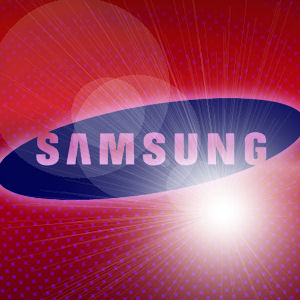
Microsoft brings back Windows 7 Family Pack -- that's three Home Premium licenses for $150
As marketing tactics go, Microsoft's Windows 7 Family Pack revival is shrewdly timed. That's right, Family Pack is back -- and for a limited time. According to Microsoft's Windows Blog, "while supplies last," whatever that means. Microsoft is drumming the public relations ahead of October 22nd global availability, when consumers can grab a box with three Windows 7 Home Premium licenses for about 150 bucks. The software deal already is available in the United States direct from Microsoft or from "select" retailers.
The reasons aren't rocket science for the timing, one of which Microsoft's blog post hints at -- Windows Live Essentials 2011, which officially released late last week. "Upgrading to Windows 7 from Windows XP also lets you take advantage to one of all the benefits of the new Windows Live Essentials 2011," Ashley Brown blogs. "Windows Live Essentials is a free suite of software designed to complete your Windows 7 experience." It's a marketing pitch but also an admission: Windows Live Essentials 2011 requires Windows 7 or Vista. XP users aren't allowed.

Barnes and Noble reveals e-book pricing 'sweet spot' with new self-publishing tool
Book retailer Barnes and Noble on Monday launched its independent e-book publishing platform Pubit! to attract independent and do-it-yourself publishers to the Nook e-reader.
Books released through Pubit! can be priced as low as 99¢ and as high as $199.99, but there's definitely a sweet spot where Barnes and Noble encourages publishers to list their e-books. That spot is between $2.99 and $9.99, where publishers take 65% of the money collected. Titles priced less than $2.98, and more than $10.00 only earn publishers 40% of the list price.

Movie Review: 'The Social Network'
Near the end of David Fincher's movie about Facebook, a young attorney tells CEO Mark Zuckerberg: "You're not an asshole, Mark. You're just trying so hard to be one." It's something of an apology for a movie that makes Zuckerberg appear every bit the asshole.
Early in the movie, Zuckerberg's girlfriend dumps him, saying: "You're going to be successful and rich. But you're going to go through life thinking that girls don't like you because you're a tech geek. I want you to know, from the bottom of my heart, that won't be true. It'll be because you're an asshole." Her comment and the one later bookends the movie. But there's something about the early asshole characterization that doesn't fit. The movie opens with Zuckerberg talking to the girlfriend (Erica Albright, played by Rooney Mara), and he comes off every bit the stereotypical over-intellectual, socially inept geek. He speaks his mind, to a fault.

Clear's board shakeup a possible sign of T-Mobile deal
In a surprising move said to address antitrust law change concerns, all Sprint executives nominated to Clearwire's board stepped down late Thursday. Sprint CEO Dan Hesse, president of strategy and corporate initiatives Keith Cowan, and network operations and wholesale chief Steven Elfman have sat on the board since 2008's merger of Xohm and Clearwire.
Sprint had also nominated four others, but those appointees would keep their board seats. The wireless carrier did however reserve the right to appoint new people to those positions "at a later date." While that may indeed be true, some believe the move could be an effort to clear any concerns over a possible deal with T-Mobile.

New plugin turns Adobe InDesign into Amazon Kindle publishing tool
Amazon on Friday launched the beta of a new plugin for desktop publishing software InDesign which converts InDesign project files (.indd and .indb) into Amazon Kindle books.
The plugin lets InDesign book and document files keep their font styles, and text and paragraph alignment after being converted to Kindle Format, and allows links, images, tables, and lists (bulleted or numbered) to be embedded as well.

Samsung bets on Windows Phone 7 as it phases out Symbian
Samsung said Friday that it had committed to Microsoft's new Windows Phone 7 operating system, planning to release "several" devices in the US, Europe, and Asia by the end of the year. The Wall Street Journal also indicated that the first Samsung WP7 phone would be released on AT&T on October 11, citing sources.
The Korean phone manufacturer's announcement coincides with its phasing out of Nokia's Symbian platform. Developers registered with the company received an e-mail this week alerting them that Samsung planned to drop support completely for the platform, yet another blow to the now aging OS.

Microsoft says Motorola's Android phones are patent infringers
Microsoft has filed a patent infringement lawsuit in the Western District of Washington against Motorola, Inc, a statement from Horacio Gutierrez, Microsoft's deputy general of IP and Licensing said today.
The suit accuses Motorola of infringing on nine Microsoft patents with its Android-based smartphones.

Blu-ray faces a solid five years of growth thanks to 3D, says research
Blu-ray player sales for the full year 2010 will total 24 million, well over double the total sales of 2009, Futuresource Consulting said in its annual Blu-ray and DVD Hardware Performance report today, and the growth is only expected to continue.
These figures suggest that Blu-ray still has a solid footing, despite the growing chorus of dissenters who think that Blu-ray has no future. In an interview last week, Microsoft UK executive Stephen McGill said, "Blu-ray is going to be passed by as a format. People have moved through from DVDs to digital downloads and digital streaming, so we offer full HD 1080p Blu-ray quality streaming instantly, no download, no delay. So, who needs Blu-ray?"

If iPad isn't cannibalizing Mac sales, what about Windows PCs?
That was my first question after reading a press release about NPD's new report "iPad Owner Study." This is why analysts aren't reporters: The report title has about as much reader appeal as a cardboard box (Maybe Bing or Google search will scoop it up). But, hey, people paying for the report want the data, not flashy titles. As to my question, Stephen Baker, NPD's vice president of industry analysis, succinctly told me: The iPad "is cannibalizing nothing in the PC business."
Oh yeah, then why does NPD's press release, issued today, state that "13 percent of iPad owners surveyed bought an iPad instead of a PC." Baker had a good answer for that: "13 percent is a bite, not a cannibal, and just because sales are slowing when iPad is showing up doesn't mean the two are related; and just because everyone sees all these people using iPads doesn't mean they didn't buy a PC now. It may mean that in the future but the numbers argue that Windows 7, tough comparables, flat pricing, weak economy are much more to blame."

Former SAP chief Apotheker named CEO of HP
After a nearly two month search, HP said Thursday that it had selected Leo Apotheker to succeed ousted CEO Mark Hurd. Apotheker had resigned from business software firm SAP in February of this year after serving for nearly two years as the company's chief executive, and a total of nearly two decades within the company.
The company has also named Ray Lane as its new chairman. Hurd had served as both HP's chairman and CEO. In naming Apotheker, HP passed over several potential candidates from within, including printer business chief Vyomesh Joshi, PC head Todd Bradley, storage and server unit chief Dave Donatelli, and enterprise division chief Ann Livermore.

Android phones now as desirable as iPhones, study indicates
Data from research firm ChangeWave shows continuing momentum for the Google's mobile platform, with consumers now desiring a new phone based on Android vis a vis the iPhone. 37 percent of respondents who plan to purchase a phone in the next 90 days say they'd like an Android phone, versus 38 percent for the iPhone.
The iPhone 4 only briefly stopped consumers from flocking to Android when it launched in June of this year. As the hype has simmered down, consumer's desire for Android phones has heated up, however. In just one year, interest in the platform has increased six-fold, the firm found.

How zombies inspired a new kind of set-top box
On-demand streaming video will eventually replace disc-based media and linear broadcast media. As high-tech consumers, we've been hearing about it for years, and there are literally hundreds of set-top boxes and TVs available today that are equipped with broadband connections to prove it.
But getting movies and television into our living rooms is only one use for streaming video, and Hollywood veterans Anatoly Fradis and John Vulich have debuted a new product called Aurora CineStreem that is the first streaming set top box we've seen that is designed to be used by professional filmmakers.

Android App Store from Amazon: potential game changer
Amazon is rumored to be working on its own app store for Android that would compete with Google's Android Market. Though Amazon has not announced it or made any statements confirming the rumor, SlashGear today got its hands on the store's terms and conditions for developers, and they seem to sync with the rumors from earlier this week.
Included in these terms are the royalties for developers, which would be 70% of an app's purchase price or 20% of its list price; and conditions for listing applications in other app stores, (apps must be released in the Amazon store at the exact same time as in other app stores, or earlier.)

Microsoft: Windows Live Spaces already dead, WordPress.com will only get 1% of 30M users
Windows Live Spaces' shutdown may not be a big win for WordPress.com, after all. According to internal e-mail messages obtained by Betanews, Microsoft expects only about 1 percent of Windows Live Spaces bloggers to move to WordPress.com. If not there then where? In the e-mail exchange, one Microsoft executive asserts about the 30 million active Windows Live Spaces blogs: "Most are dead."
The e-mail exchange took place on Sept. 28, the day after Automattic and Microsoft revealed that Windows Live Spaces would shut down in about six months and that bloggers could migrate their sites to WordPress.com. The announcement asserts there are 30 million "active" Windows Live Spaces blogs. But the e-mail exchange suggests otherwise.

GMail "Conversation View" to become an option
One of the signature features of Google's Gmail e-mail service is about to become optional. The company said Wednesday that over the next few days it would allow its users to turn off "conversation view," which organizes e-mail threads onto a single page for easier viewing.
Technical lead Wiltse Carpenter said the move was aimed at drawing in users who may be passing up Gmail because of their dislike for the way it formats your inbox. "The way Gmail organizes mail into conversations is like cilantro," he quipped. "You either love it ... or you hate it."



